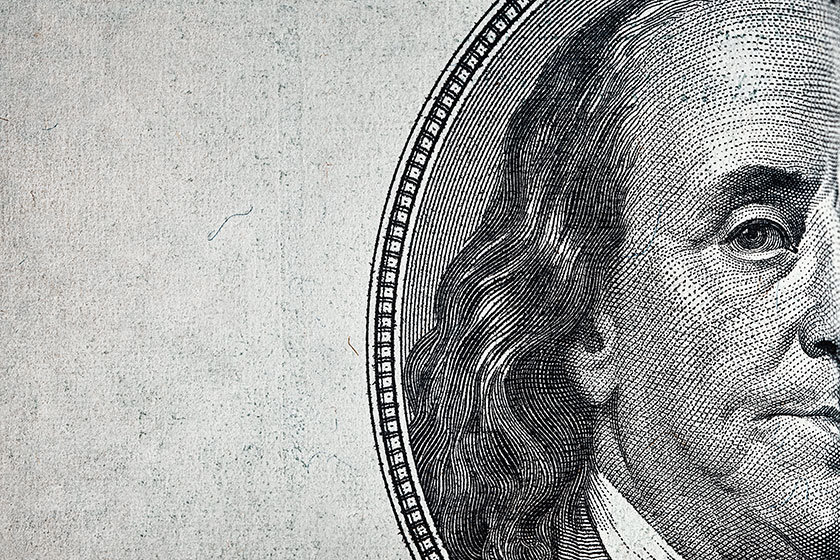A New Year, a New Approach to Your Finances

The fresh slate of January is a great time to develop new habits and new ways of thinking. Finances are an important area to examine and determine if we need to change our habits and actions. Our decisions about money impact almost every area of our lives, both inside and outside the prison walls. Take a look at these seven tips on finances for prisoners. Do you need a new approach on your journey toward financial freedom?
1. MONEY IS A MIRROR
What do you value most in life? Take a minute and identify your top three priorities. Examples might be your family, your physical health, your mental health, your education, or your faith. Now think about the last five things you spent money on—or if you haven't been spending money lately, what you would spend $100 on if you received it. Does the way you spend money match your priorities? If not, that's a good sign that you need to rethink your spending habits.
2. YOU CAN'T EVALUATE WHAT YOU DON'T TRACK
It's so easy to spend without thinking. And there is no way to know if you're making good choices if you don't keep track of where your money is going! Start keeping a chart of money you receive (from a job and/or gifts from family) and money you spend. Record every dollar and cent so that you can see exactly what's going on. Write down things you'd like to save toward, too. Once you can see all of this in black and white, you'll know if your money choices align with your goals.
3. LITTLE CHOICES HAVE A BIG IMPACT
Think about the small things you spend money on. Is there anything you can limit or even cut out altogether? Sodas and snacks seem like little expenses, but they add up! Consider ways you can spend less so that you have more for the things that really matter to you.
4. MAKE A SHORT-TERM PLAN FOR LONG-TERM GOALS
It might seem impossible to help your family with a big education expense or to pay off a large court fine. But like the old saying goes, the only way to eat an elephant is one bite at a time. Write down the amount of your big goal and when you'd like to complete it. Now calculate what you need to save per month to reach your goal. Decide whether you need to work more or spend less (or both). Your long-term goals can be achievable if you are willing to make short-term sacrifices.
5. LIVE SIMPLY
When you simplify how you live and reduce what you buy, you can meet your savings goals faster. And simple living can also help you stop chasing temporary material pleasures. In prison, this might mean eating in the dining hall and rationing snacks to make them last. After your release, you can use coupons, buy food in bulk, purchase clothes at thrift shops, and use the public library to rent books and movies for free.
6. PLAN TO AVOID AND SOLVE DEBT
Credit is when you buy something with money you don't have—and usually, there is a fee for borrowing that money. You might have to pay interest when using a credit card. Or maybe your cellmate will let you have one of their snacks, as long as you "pay back" two. The bottom line is that it is always more expensive in the long run to use credit than cash. The best policy is to wait and save! But if you do have debt, don't miss due dates (late fees are expensive), and when you're released, don't ignore mail from credit card companies or bill collectors, find out if you can consolidate or combine your debt with one credit union or agency, and check your credit report every year.
7. EXPECT THE UNEXPECTED
It’s a good idea to save money for emergencies. While in prison, you can set aside a small amount for unexpected expenses. And after your release, you can keep an "emergency fund" by putting aside your tax return each year, or if you get paid weekly, you can set aside some money from the several months a year that have five paychecks instead of four. You can also cancel cable or cell phones when an emergency arises. Or you can create income by selling unnecessary assets (extra car, jewelry, etc.) or doing services like yard work or cutting hair.
No matter what the new year holds, make plans now to be a smarter money manager. The peace and security this will bring are priceless!
This article was originally published in the Winter 2022 edition of Inside Journal. It is adapted from Faith & Finances®, a collaboration between the Chalmers Center and Prison Fellowship®. This financial education material was specially designed for incarcerated people and is used in the Prison Fellowship Academy®.
COPING WITH INCARCERATION?
We endeavor to support prisoners and their families, helping them become reconciled to God and one another through the power of the Gospel and supported by transformative relationships with local churches. For more articles like these, visit our resource page.
DID YOU ENJOY THIS ARTICLE?
Make sure you don' t miss out on any of our helpful articles and incredible transformation stories! Sign up to receive our weekly newsletter, and you' ll get great content delivered directly to your inbox.
Your privacy is safe with us. We will never sell, trade, or share your personal information.